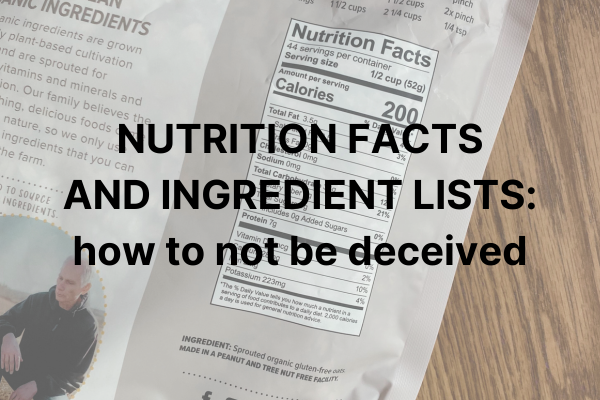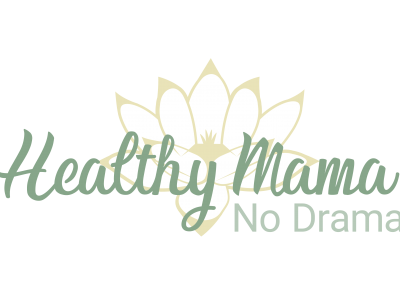Have you ever bought food, thinking it was healthy, and then later found out it wasn’t as healthy as you thought? You may have even examined the nutrition facts, ingredient list, and thoroughly read the package…and that should be enough! But, unfortunately, it’s often not enough.
There is so much deceptive information on food nowadays that make you think you’re paying more for something because it’s healthy, when in all actuality it’s not much healthier than the less expensive options.
So, how can you ensure you’re getting truly healthy food and not something that is just deceptively labeled junk? Here are a few tips! By no means is this list all-encompassing, but it’s a great place to start!
Don't be fooled by the claims on the package
The most misleading claims
Organic food
- “100% organic” (or USDA organic) – all ingredients are organic, no non-organic ingredients or processing aids are used
- “organic” – 95% of the ingredients are organic
- “made with organic” – 70% of the ingredients are organic
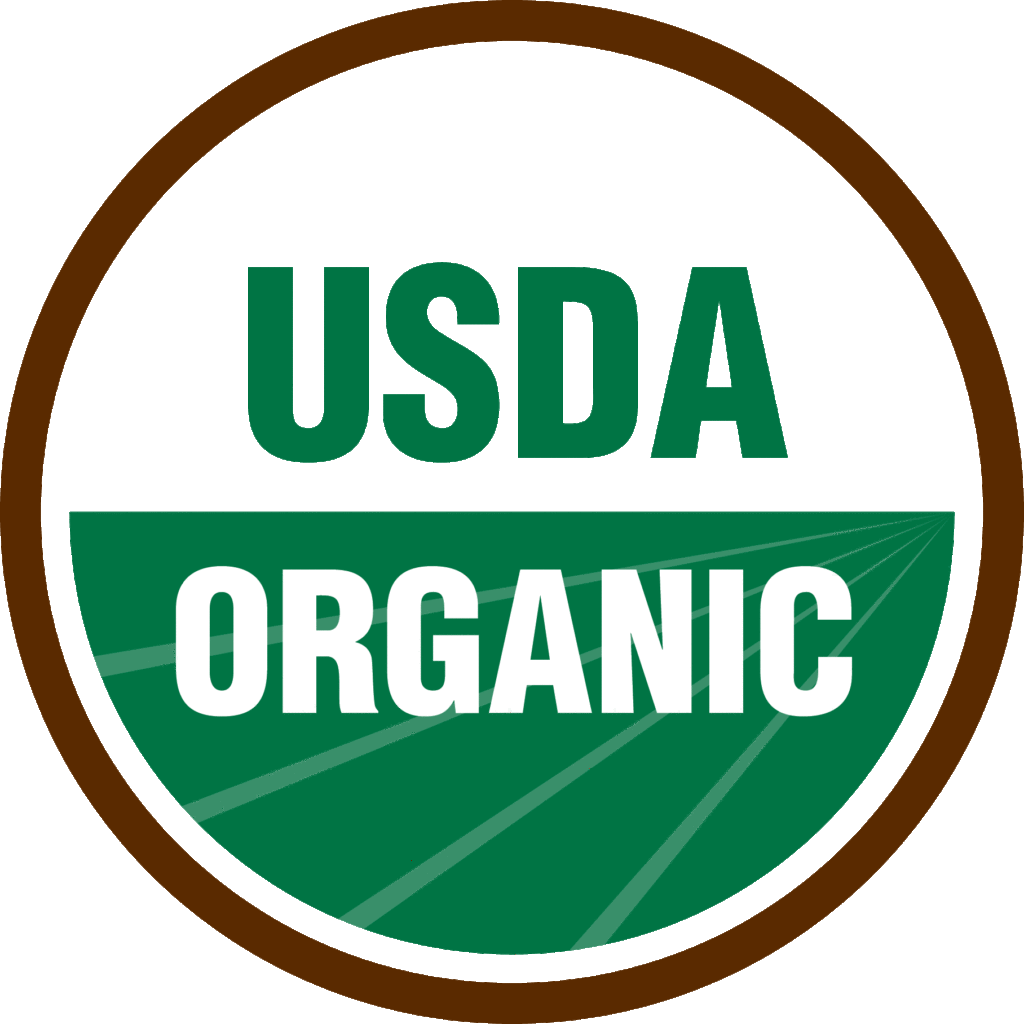
All three organic product claims may use the logo of the certification, which is why this can be deceptive if you’re just looking for the logo.
Now, that’s not to say you have to purchase only organic food. If your budget doesn’t allow for that (which is the case for many), use this list as a resource to know what food should be your priorities.
Non-GMO
When a food claims to be non-GMO, it’s stating that no ingredients were used that were genetically modified or that came from livestock that had been fed genetically modified food. Non-GMO foods are often also organic, but not always. It doesn’t go the other way though…non-GMO doesn’t indicate an organic status.
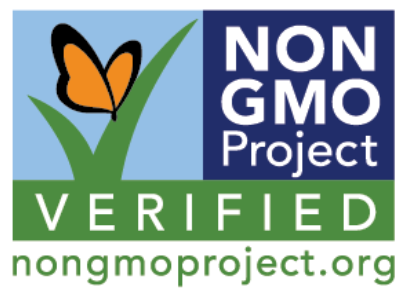
There are currently only 14 foods grown in the United States that are genetically modified. You can see a current list here.
The tricky part is all the various labels out there that try to insinuate a non-GMO status without actually being verified as non-GMO. Like this green one here…there’s not verification behind this label.
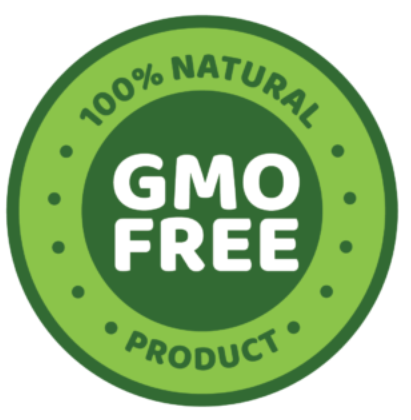
Eggs
- Natural, No Added Hormones, and Vegetarian Fed – all basically mean nothing. These terms are not regulated. Hormones are not legally allowed to be used with chickens…so putting that on the label is unnecessary.
- Cage Free– simply means the hens aren’t locked up in cages. It doesn’t mean they’re getting fresh air, space to roam, or even grazing on quality food. They’re likely still crammed inside in close quarters.
- Free Range– means the hens are uncaged and do have access to the outdoors, but the deception here is this often looks like a bunch of hens crammed together with minimal outside time.
- Pasture-raised– this is really what you want to look for as it refers to hens that have been raised with access to lots of outdoor space and have access to their natural diet which consists of plants and bugs. This can increase the nutrients in the eggs, including higher levels of omega-3 fatty acids. Look for a “certified humane” or “animal wellfare approved” label for the best pasture-raised eggs.
Examine the ingredients list
- An ingredients list that is longer than two to three lines suggests that the product is highly processed.
- Look closely at the first 3-4 ingredients, if they contain refined grains, sweeteners (everything from cane sugar or syrups to fructose, sucrose, etc.), or hydrogenated oils, you can assume that product is not healthy.
- Red flag ingredients: check out this article for the top 12
Watch for nutrition facts red flags
- Any trans fats, high amounts of saturated fats
- More than a few grams of added sugars
- Grains without fiber
- High levels of sodium (more than 20% of daily value per serving)
- Unreasonably small portion sizes – if you will naturally eat more than the “serving”, then the nutrition facts are immediately innacurate
Related posts:
- My daily routine for healthy skin Youthful, healthy skin is something I think we all desire, but many don’t know how to achieve it. As we get older, our skin begins to show signs of aging...
- 10 ways to improve digestion Good digestion is essential for overall well-being. It ensures that our bodies can efficiently extract nutrients from the food we eat while eliminating waste. Unfortunately, many people suffer from digestive...
- Natural sunscreen: what to look for There are a ton of sunscreens on the market, but how do you know which ones work? And how can you tell if a sunscreen has clean ingredients? Here's my...
- Why supplement with digestive enzymes? Digestive enzymes are a powerful way to support optimal digestion, gut health, and more....

